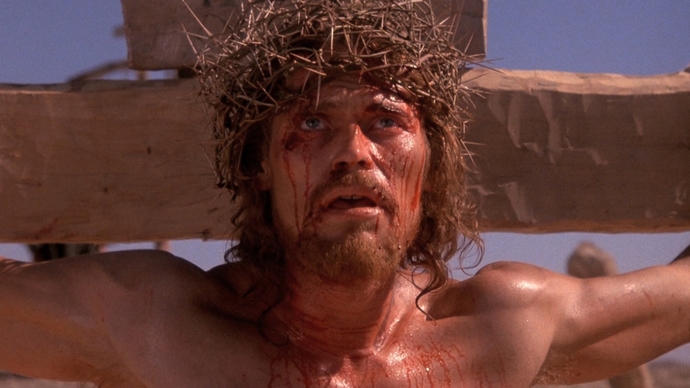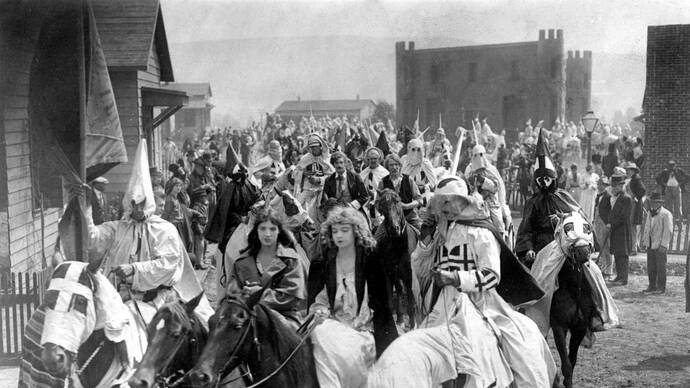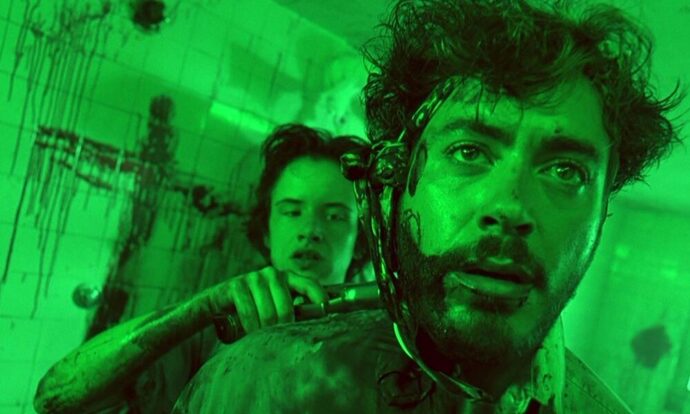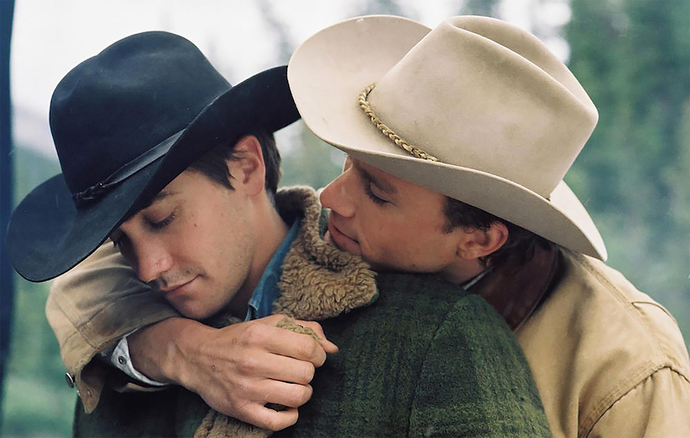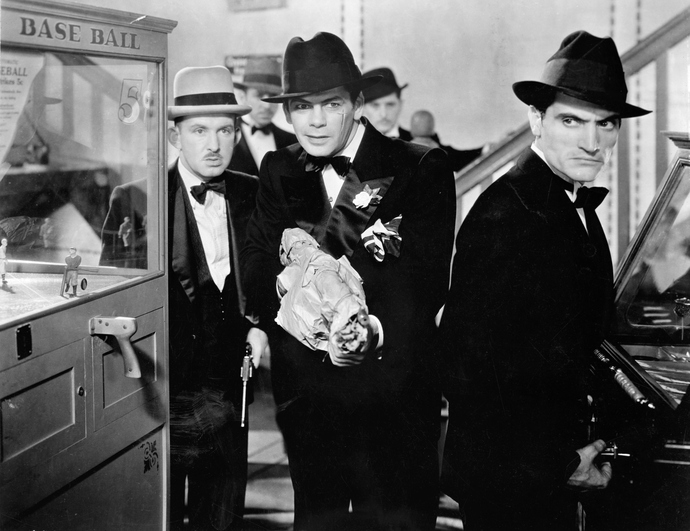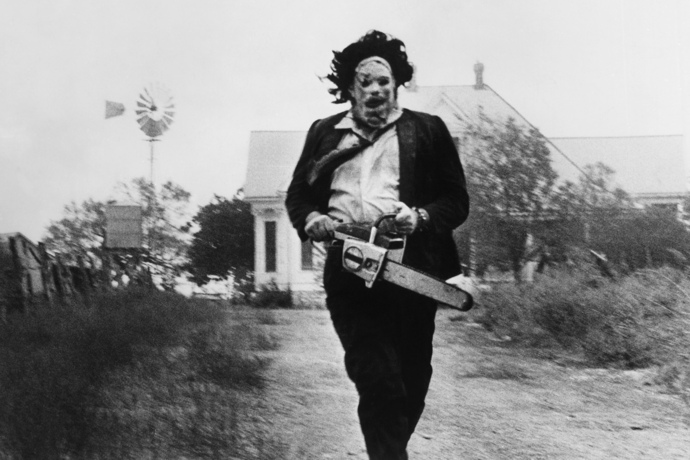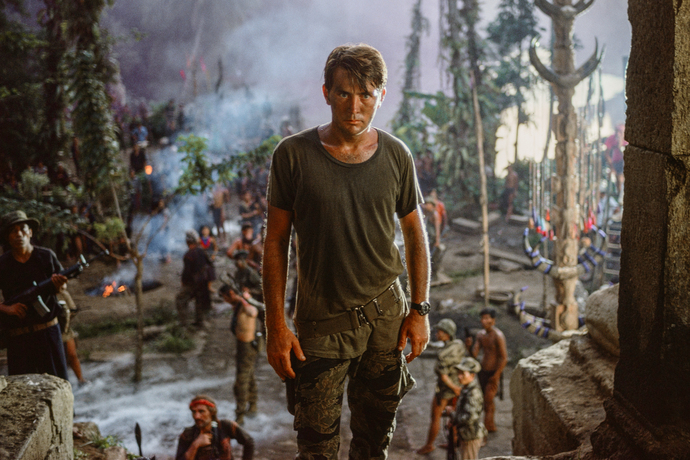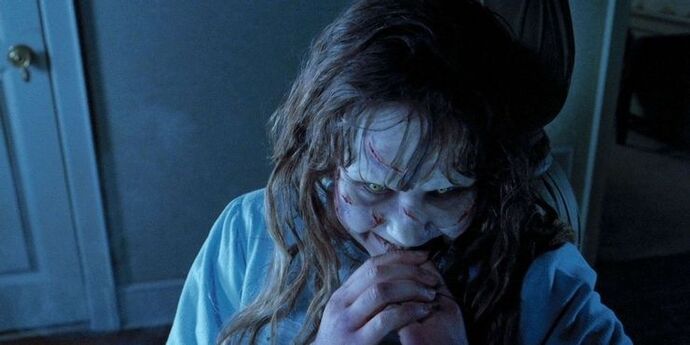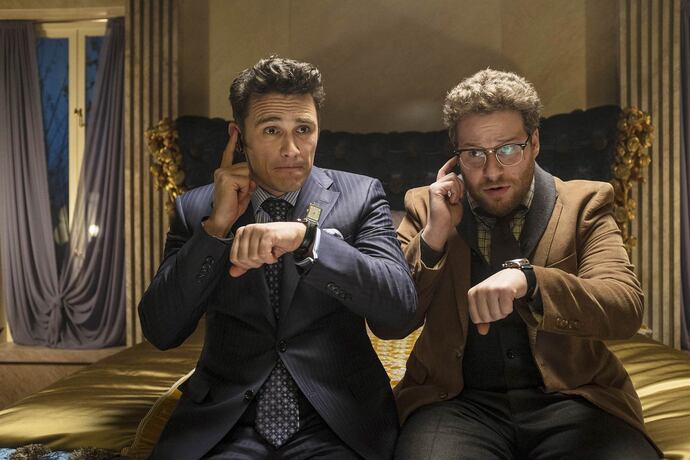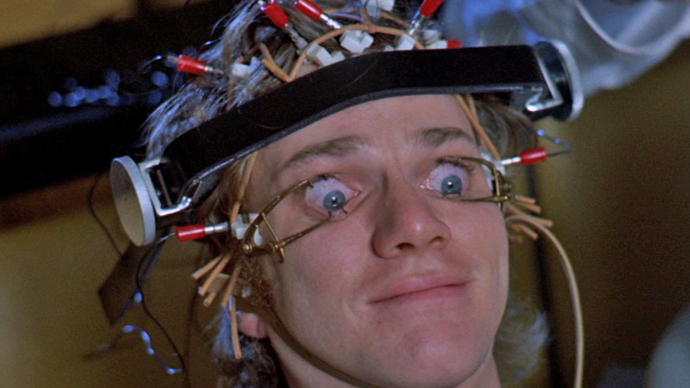Take The Human Centipede, for example. That abhorrent horror flick was banned in the UK until it’s 32nd cut was deemed just acceptable enough by the BBFC for viewing—and anyone who doesn’t live under a rock can understand why previous cuts of that film were banned. But then there are others—notable mainstream films that were banned, not due to sheer shock value, but for whatever other reason that made the film unpalatable. Maybe it was a little weird, maybe a little dark, but certainly not warranting a complete removable from public viewing! Here are some of the most controversial mainstream movies that were all banned at one point or another in cinema history.
10. The Last Temptation of Christ (1988)
The Last Temptation of Christ reinterprets the story of Jesus Christ with a romantic spin, proposing that Jesus fell in love with Mary Magdalene. Devout Catholics may find Martin Scorsese’s holy biopic offensive, with Mother Angelica dubbing it a “blasphemous ridicule of the Eucharist.” Based on Nikos Kazantzakis’ controversial 1955 novel, the epic drama was considered pure sacrilege in Greece, Turkey, Mexico, Chile, and Argentina, where it was heavily censored for many years. Nowadays, Willem Dafoe’s depiction of the Son of God continues to be banned in the Philippines and Singapore. Not all Christians were quite so appalled, though, with some acknowledging that Jesus might’ve been tempted as he was, in part, a fallible human being like any other.
9. The Birth of a Nation (1915)
Originally titled The Clansman—which alone tells you everything you need to know—The Birth of a Nation is a silent epic directed by D. W. Griffith. Based on Thomas Dixon’s 1905 novel, the story pines for the Lost Cause ideology of the American Civil War, with the Ku Klux Klan as heroes. The Birth of a Nation is considered “the most controversial film ever made in the United States” as well as “the most reprehensibly racist film in Hollywood history.” The African-American community is depicted as sexually abusive aggressors, portrayed by white actors in blackface. The NAACP fought for the film to be banned in several states, though it didn’t last long and is now preserved at the National Film Registry and Library of Congress. Its immense technological advancements for the film industry (the first 12-reel film ever made), The Birth of a Nation is a cinematic landmark. It’s just a shame about its content…
8. Natural Born Killers (1994)
The title of Oliver Stone’s crime flick is a good indicator of its graphic content. Woody Harrelson and Juliette Lewis star as a homicidal couple who turn to mass murder sprees as a coping mechanism for their trauma. They quickly make headlines and become glorified by the media—a message that means all the film’s violence isn’t for nothing. Some viewers didn’t see it this way though, and Natural Born Killers was completely prohibited in Ireland until 2006. Some footage even had to be cut from the film in order to be shown in America, and its release was delayed in the UK while under investigation by the BBFC. Despite Natural Born Killers using excessive violence for allegorical satire, it did cause real damage. A handful of copycat crimes sprang up, and the attackers’ code name for the Columbine High School Massacre was “NBK.” Maybe this film’s ban is somewhat understandable.
7. Brokeback Mountain (2005)
A Neo-Western romance from Ang Lee, Brokeback Mountain won multiple Academy Awards and went down as a monument for queer cinema. Jake Gyllenhaal and Heath Ledger star as two cowboys hired as sheep herders in the isolated Wyoming wilderness. Their “one-time” fling in a tent turns into an intimate relationship—one they must keep secret from their families back home. Despite all its accolades, the film was banned in the United Arab Emirates. Brokeback Mountain was also prohibited from a theater release in China, only to be found on bootleg DVDs and VHS tapes. Lebanon was the sole Arab country to screen the film, but, of course, the more graphically homosexual scenes were censored. Kind of missing the point there, Lebanon!
6. Scarface (1932)
No, not the Scarface we all know. Howard Hawks’ pre-Code gangster flick (also known as Scarface: The Shame of the Nation) was inspired by the life of infamous gangster Al Capone, so it’s no surprise that the film was actually quite brutal. At least, by 1930s standards it was. Scarface stars Paul Muni as the Italian immigrant gang lord modelled on Capone, who rises through the ranks in Chicago. Despite audiences eating the film up, censors prohibited Scarface in several states for its glorification of crime. Producer Howard Hughes was forced to store the movie—which would heavily influence the gangster genre—in his vault. It was only uncovered after his death in 1976 and added to the National Film Registry in 1994.
5. The Texas Chain Saw Massacre (1974)
Anything with the words “chainsaw” and “massacre” in the title is sure to stir up a little controversy. In this one, Gunnar Hansen is the infamous villain Leatherface, who murderously brandishes a chainsaw while wearing a mask made of human skin. The Texas Chain Saw Massacre isn’t just mindlessly gruesome for the fun of it. Some have viewed its cannibalistic themes as a pro-animal rights satire, as well as a commentary on contemporary American life. That said, it’s still very disturbing and remains one of the most controversial horror franchises ever made. It still managed to pack quite a punch at the domestic box office, and is an early example of the slasher genre, pioneered by Alfred Hitchcock in Psycho. While it’s now one of the most famous horror movies ever made, Tobe Hooper’s grisly indie movie was banned in Brazil, France, Germany, Australia, Britain, Norway… the list goes on.
4. Apocalypse Now (1979)
The status of Apocalypse Now as an anti-war or pro-war movie is debatable, but most fans see it as against war. Francis Ford Coppola’s war epic depicts the horrors of Vietnam, and more importantly, its futility. Martin Sheen stars as Captain Willard, sent to assassinate a colonel who’s gone AWOL, played by Marlon Brando. Willard’s descent into madness—both physically and metaphorically—highlights the ridiculous waste of lives that came with the Vietnam War. Despite its awards, South Korea wasn’t a fan of Coppola’s counter-war message, so Apocalypse Now was banned under President Park Chung-hee’s regime. The ban wasn’t lifted until 1988.
3. The Exorcist (1973)
Nowadays, The Exorcist isn’t particularly scary, but it sure was back in the 70s! William Friedkin’s controversial horror classic stars Linda Blair as a little girl who gets possessed by the devil, cussing and vomiting her way through half the movie. The creepy prosthetics and dark themes meant The Exorcist was taken off shelves in the UK, only to be shown on the odd occasion in cinemas. The prohibition lasted 11 years until the film’s gruesome effects died down in comparison to more modern horrors. Viewers tried to get The Exorcist banned in a number of American cities following reports of viewers having heart attacks and miscarriages (yikes). These protests largely failed, though, as fans flocked to see the movie and happily queued for hours in the winter snow.
2. The Interview (2014)
North Korea put up one hell of a fight when it came to the release of Seth Rogen and Evan Goldberg’s political comedy The Interview. James Franco stars alongside Rogan as the producers of a tabloid-TV talk show who set up a meeting with Kim Jong Un (played by Randall Park). As you can probably guess, the duo paint the supreme leader in a less-than-positive light, and they get roped into a plan to assassinate him. In June 2014, North Korea threatened Sony if they dared to release the movie as-is, so an edited version was made. But even after this, terrorist threats still lingered around theaters that planned to show the movie, so it only became available via digital rental.
1. A Clockwork Orange (1971)
It wasn’t the censorship board that decided to remove A Clockwork Orange from British screens; it was director Stanley Kubrick himself. Based on Anthony Burgess’ 1962 novel, the dystopian crime film is very disturbing—which is what made it so famous! Alex (played by Malcolm McDowell) is the iconic bowler-hat-wearing anti-hero who destroys, steals, and rapes his way into prison. And yes, that last one is very graphic, leading Kubrick to put a three-decade long ban on his own movie. Rumors of copycat crimes circulated after A Clockwork Orange’s release, so the film was withdrawn from British cinemas until Kubrick’s death in 1999. A Clockwork Orange was also banned in South Africa and Brazil, and Argentinian authorities demanded parts of the film be cut out. Read next: The best examples of surrealism in movies

